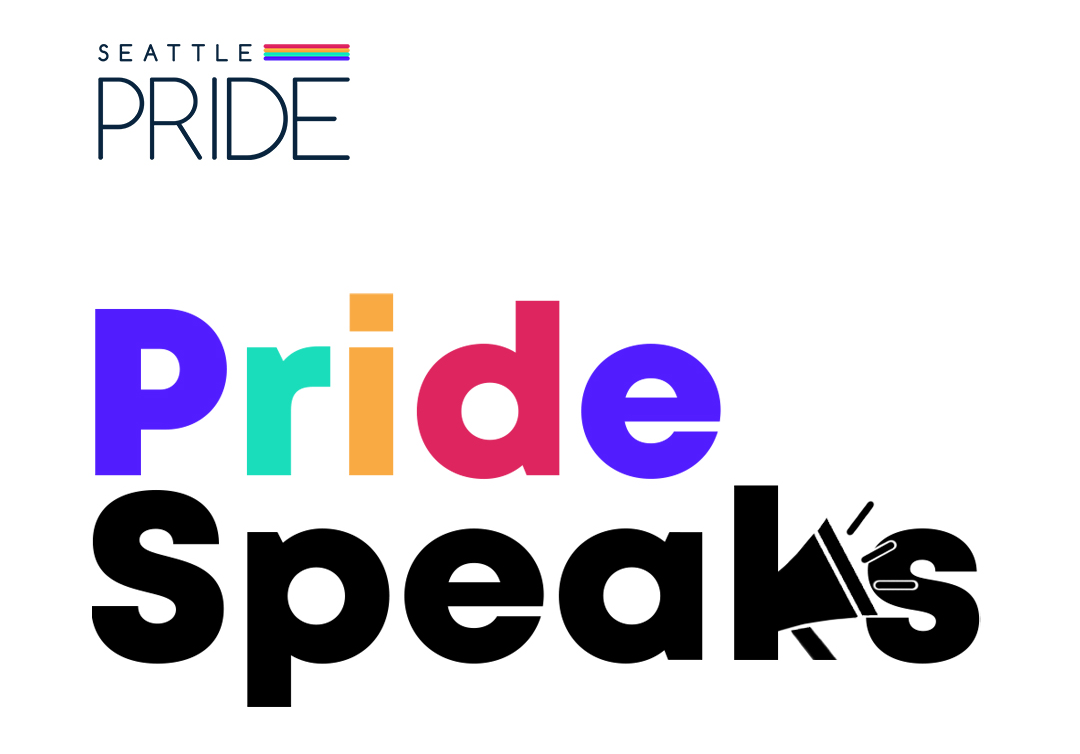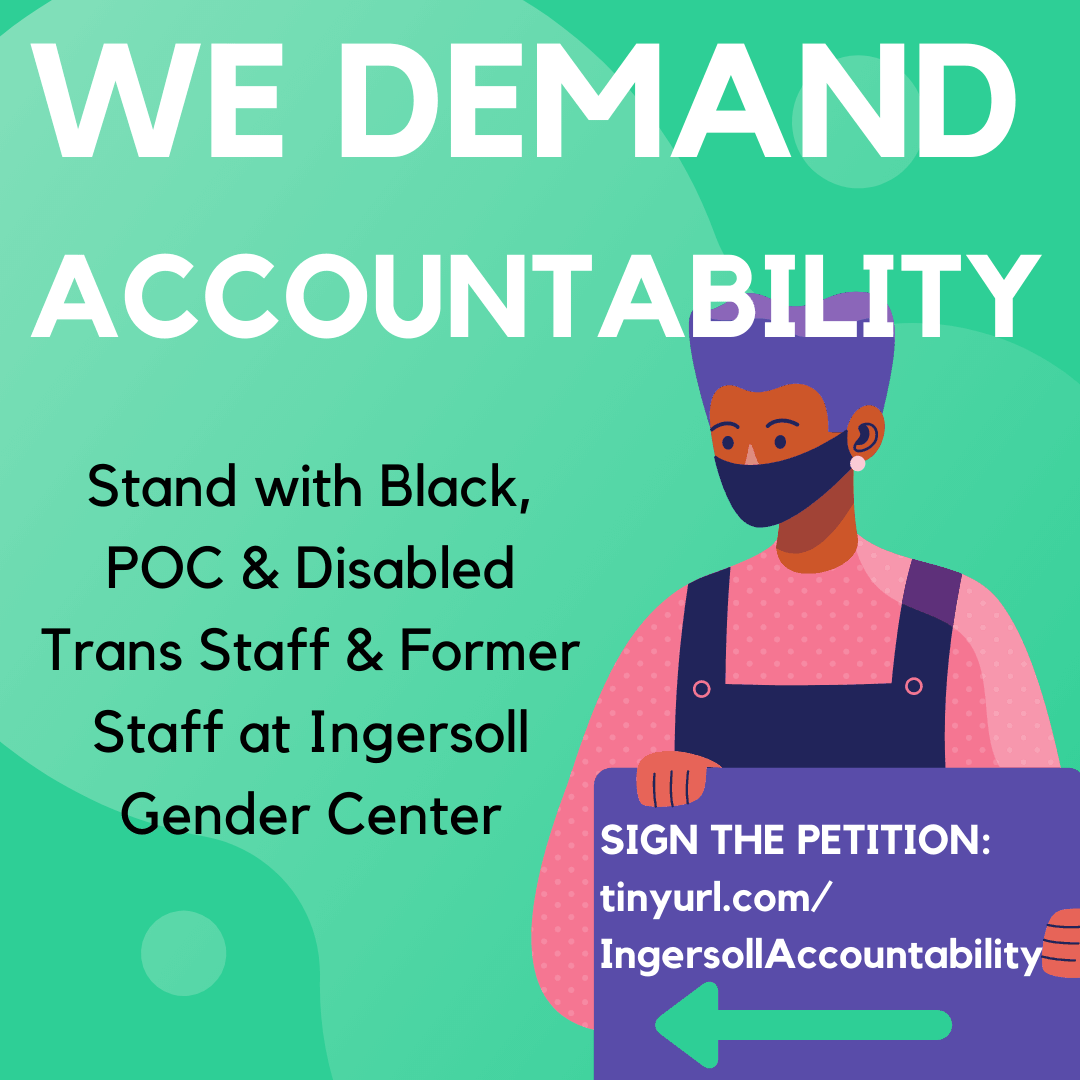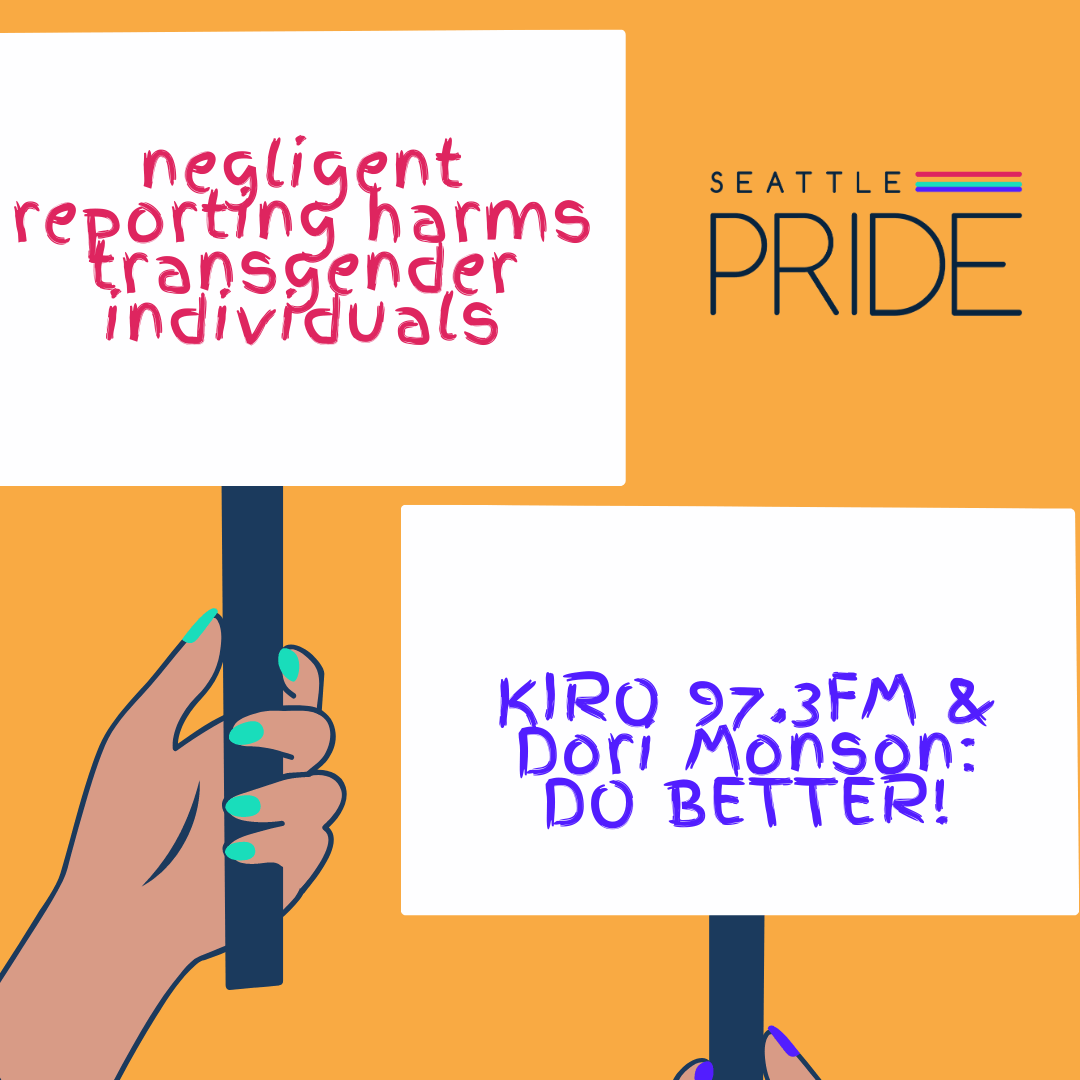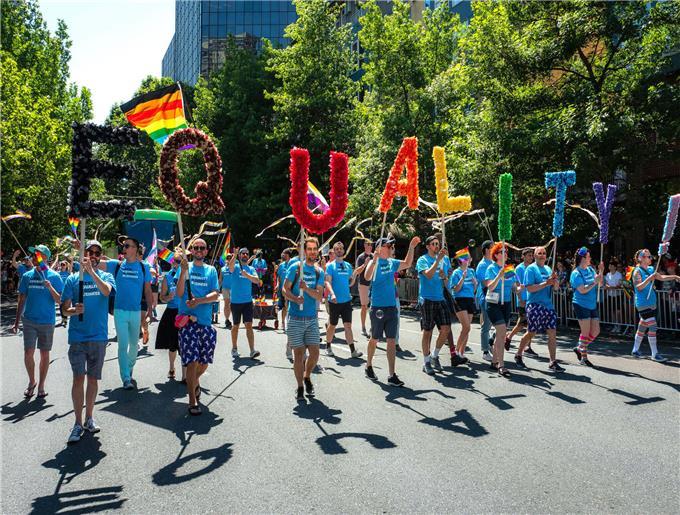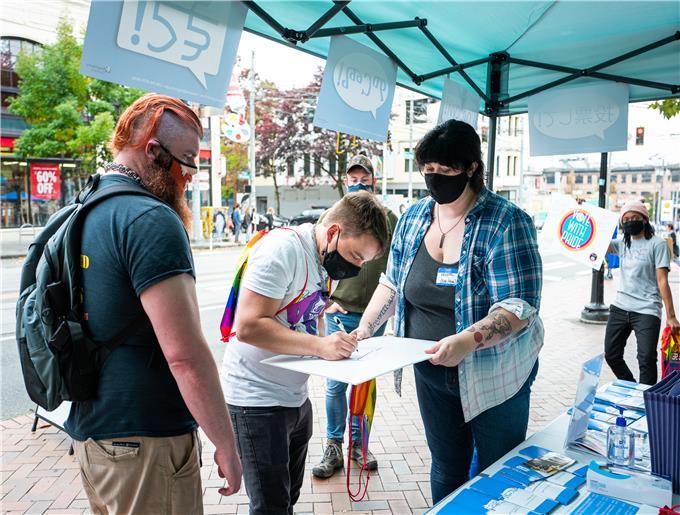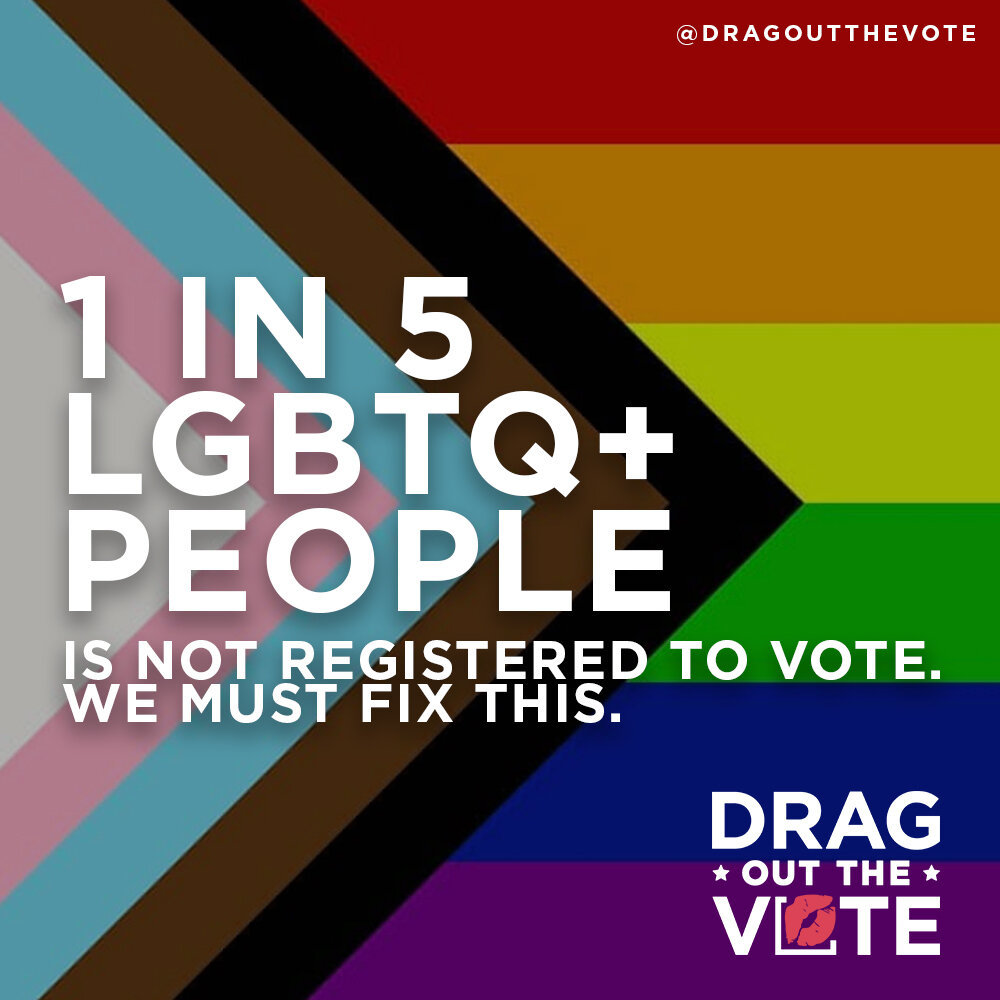
Responding to Elon Musk's pronoun-mockery
Jan 08, 2021 | Seattle Pride
This is the second time in as many months that a high-profile figure has used the trans community as a punching bag and that Seattle Pride has been compelled to speak out against it if we are to stand in our integrity as an organization.
In a series of tweets over the course of a few days, SpaceX and Tesla CEO, Elon Musk, spent what little free time he has mocking the use of pronouns. He responded to pushback by saying “I absolutely support trans [sic], but all these pronouns are an esthetic [sic] nightmare” and then pointing to one of his companies’ 100% score on the Human Rights Campaign’s Corporate Equality Index (CEI), in an attempt to inoculate himself against criticism.
Mr. Musk’s behavior publicly flouted his companies’ LGBTQIA+ inclusion policies and the HRC’s equality metrics on which they base their scores. His tweets were ignorant and harmful. As a person with significant influence, his words inspire contempt towards an already marginalized group both inside and outside his organization. It is difficult to enforce inclusive policies that are publicly mocked and undermined by top corporate officials. After all, why would an employee need to abide by policies that are worthy of derision and ridicule.
While Mr. Musk is a prolific and charismatic visionary, it’s impossible to overlook his inability to envision the very real implications of his actions for trans and nonbinary folks. He is an expert in many areas; diversity and inclusion isn’t one of them. That’s why there’s a team of educators and trainers at his disposal, all he has to do is decide he wants to learn.
We call on Mr. Musk to issue a sincere apology for his comments and engage with his diversity and inclusion teams to learn effective ways to be an ally.
We call on SpaceX, Tesla, and the companies within the Musk portfolio, to condemn Mr. Musk’s comments, reiterate their commitment to diversity and inclusion within their companies, and determine if their inclusion policies are robust enough to stand up to failures in leadership.
We call on the employees at Musk’s companies to speak out against Mr. Musk’s comments internally and put pressure on leadership to substantially address past and future failures in leadership.
We call on the Human Rights Campaign to give credence to the criteria set forth in their Corporate Equality Index by enforcing the Responsible Citizenship metric for all companies headed by Mr. Musk.
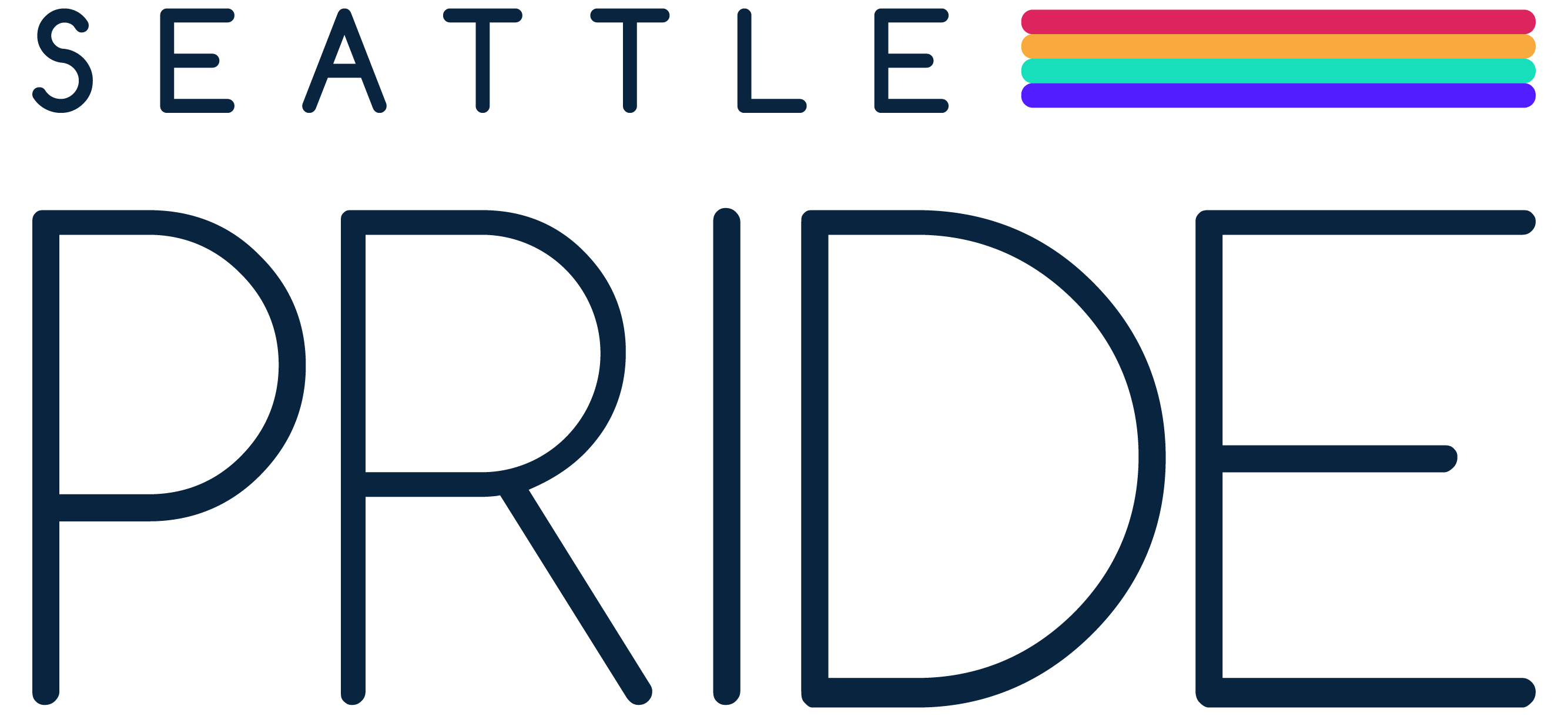
Additional Information
When Musk reached for his credentials, citing Tesla’s score of 100% from the Human Rights Campaign’s Corporate Equality Index, we hit the trifecta: mock, minimize, and deflect; a masterclass in defensiveness and privilege.
In regards to the content of his tweets, we’ll let someone else have the debate of what constitutes “transphobia.” What we will state is that Musk’s tweets were subtle acts of exclusion, or microaggressions, by someone who chose to use his platform as a way to show how “edgy” he is by punching down on a marginalized community. And it’s not the first time Musk’s done it.
Using someone’s correct pronouns is vital to the dignity and respect for trans and nonbinary folks. Full stop. If Musk truly wants to be someone who supports a community, then he needs to support them. Saying he supports them doesn’t mean anything if his actions don’t substantiate his claim. We don’t need to drag Musk, but we do need to address why what he said is not only ignorant, but harmful to one of the most marginalized communities.
Pronouns
Pronouns are a combination of one’s name and identity. That is why they’re so powerful and vital to someone’s dignity. They are placeholders for someone’s existence. So, addressing Musk’s initial issue: putting your pronouns in your bio or name line signals to the trans and nonbinary communities that they matter, you support them, and you want to help make the world a little easier for them.
What does putting your pronouns in your bio do?
- Makes it so people don’t have to guess/assume your pronouns
- Gets people used to seeing pronouns
- Gives you a chance to tells people what language is respectful for you
- Gives allies a chance to have the conversation about why pronouns matter, taking the pressure off of folks who are misgendered to educate others
Minimizing their importance
“I absolutely support trans, but all these pronouns are an esthetic [sic] nightmare.” Rephrased, Musk's second statement reads “I would support the trans community if there were a more visually appealing way to do it.”
Treating someone with respect and dignity will always be more important than what someone subjectively thinks is “pretty”; especially if that detractor isn’t someone who experiences the same disrespect and indignity as the marginalized community. Besides the hurtful nature of the sentiment, this kind of thinking makes the conversation about the detractor, not the community. And, it tries to equate the urgency of support with palatable aesthetics; comparing humans with aesthetics. When we start debating humanity, the conversation is over.
Why do pronouns matter?
The trans community is conditioned to experience mental and physical health which are disproportionately worse off than the larger population, specifically stress, anxiety, depression, and suicidal ideation and behaviors. Trans youth report having suicidal thoughts at twice the rate of their peers. This isn’t innate because they are trans. It’s because of society’s negative response to them being trans. Negative mental and physical health effects fall away when the trans youth are respected and affirmed.
What kind of negative responses affect mental and physical health issues? Things like mocking pronouns usage, suggesting that displaying pronouns is somehow oppressive to others, and minimizing the importance of pronouns by pointing to the aesthetics, etc. It’s especially potent if a person does that publicly to nearly 41 million followers and millions more who come across it in other ways.
Trans youth who are able to use their chosen name at school, home, work, and with friends have a 71% decrease in depressive symptoms, a 34% decrease in suicidal ideation, and a 65% decrease in suicidal behavior. Having even one of those four spaces where a chosen name could be used resulted in a 29% decrease in suicidal thoughts. Again, these levels aren’t high because a person is trans but because of society’s perceptions and responses to them being trans.
Interpersonal and Institutional Support
Supportive policies and responses are critical from family, friends, teachers, employers, and governments. The Human Rights Campaign’s annual Corporate Equality Index (CEI) is one of the most well known benchmarking tools on corporate policies pertaining to the support and advancement of LGBTQIA+ inclusion. Fortunately, many large companies in the US have earned 100% on the CEI report, Musk’s Tesla included (hence why he pointed to it). What is important to note is these scores leave space for company leaders to do exactly what Musk did in his third tweet: hide behind the company’s score to continue exclusionary behavior.
Furthermore, what does it mean when companies (like Tesla, SpaceX, et al) are conspicuously silent when their CEO defies the exact policies that earned them top CEI marks to begin with? It certainly gives the impression that they aren’t willing to enforce their policies, at least not to anyone with a platform. The policies aren’t meant to only be enforceable to low-level employees, but to the entire company, CEO included. After this many offenses, corporate silence begins to make inclusive policies look toothless and performative. One offense is a blemish. Four offenses is a pattern.
In fact, these public offenses are precisely what the CEI’s additional 25 points in the “Responsible Citizenship” portion are for. Per the HRC’s score breakdown “[e]mployers will have 25 points deducted from their score for a large-scale official or public anti-LGBTQ blemish on their recent records.”
The reason the Responsible Citizenship criteria is so important is because it holds a company accountable in their daily operations; not just when someone’s looking. We should expect steadfastness in corporate allyship and an unwillingness to ignore exclusionary statements, especially for companies who have a 100% CEI score. It’s easy to hold accountable those who have limited power. The Responsible Citizenship metric is a mechanism to hold those with power accountable; for this exact type of situation. A CEO mocked the trans community and then, in an attempt to deflect responsibility, pointed to his company’s CEI score. It’s exactly the same as saying “see I can’t be transphobic because my company has policies protecting trans people.”
You can be transphobic. You can issue microaggressions and subtle acts of exclusion. You just did.
Holding friends accountable
When people we care about mess up or need reminders to stand in their integrity, true friends step in to issue reminders. We’re doing that now for our friends at the Human Rights Campaign.
As the organization conferring these scores, the HRC must give these scores credibility. This is not the first time Musk has mocked the use of pronouns - something that is often thinly veiled contempt for the trans community. Nor is it the first time Tesla, Spacex, et al have remained publicly silent when their policies are put to the test. If we are to continue trusting and uplifting the CEI as a standard, it has to mean something. The purpose of the Responsible Citizenship criterion is meant to be a living mechanism to ensure leaders can’t hide behind their scores. It is meant to hold leaders, like Musk, accountable for their actions and meant to ensure companies reinforce their policies for all who are employed by them.
Where do we go from here?
We recommend the following actions:
Elon Musk: Publicly apologize for mocking a marginalized community, minimizing the importance of pronouns to identities, and tarnishing the work your HR teams have done to improve the inclusion and diversity of your companies. Further, we hope you decide to make LGBTQIA+ inclusion and allyship important in your life and take active steps to learn how to be an ally to the community. We suggest attending any of the DEI programs Tesla or SpaceX offers.
Corporate leadership at Tesla, SpaceX, et al: Stand by your antidiscrimination policies or rewrite your policies to remove LGBTQIA+ protections. If you choose to stand by your LGBTQIA+ policies, denounce Musk’s sentiments as being counter to the culture you would like to see in your company, revamp the DEI programs you offer and/or hire outside consultants to address LGBTQIA+ support at leadership levels, and review how your company will enforce anti-discrimination policies for leadership. If you choose to remove LGBTQIA+ protections, make it known to your employees and to the HRC so they can adjust your CEI scores appropriately.
Employees at Tesla, SpaceX, et al: Request that your company holds all employees accountable, including, and especially those at the top. Ask what steps the company will take to address Musk’s repeated disregard for practices that explicitly support the transgnder community, and what can be expected if these offenses continue.
Human Rights Campaign: Stand by your Corporate Equality Index and the criteria or rewrite your criteria so as to not include the Responsible Citizenship metric. If you choose to stand by it, hold Tesla (and any other Musk company) accountable based on the description of the Responsible Citizenship criteria. Your public rebuke triggers the fact that you’re aware of the offense and it was significant enough for you to respond. If you choose to rewrite your criteria, make it known to the public and those who have been scored through the CEI, and adjust scores accordingly.
What can we as individuals do?
Putting your pronouns in your bio is one of the many passive actions allies can do. A passive action is something you can do to support a community that once you’ve done it, the action stands on its own and continues to display your values for you. Passive actions are meant to be coupled with active actions, or things you actively do (protest, enforce policies, modify language, listen, call in/call out, etc). Without active actions, passive actions are performative (doing something to be seen a certain way without actively and consistently doing things).
Passive Actions we can all take:
- write inclusive company policies
- put your pronouns in your bio, email signature, name plate, Zoom name, LinkedIn profile (hey, LinkedIn, we’d love the option to put pronouns in our bio instead of having to force them into our name line! Call us!), etc
- buy/borrow books by, about, and for the LGBTQIA+ community
- modify intake forms to use language that encompasses the LGBTQIA+ community (partner/spouse instead of husband/wife)
- display pride flags
- display LGBTQIA+ publications in waiting rooms
- display diverse images on your posters/literature
Active Actions we can all take:
- enforce the inclusive company policies
- introduce yourself with your name and pronouns: “My name is Noah and my pronouns are he/him.”
- read the books by, about, and for the LGBTQIA+ community
- interrupt transphobic, homophobic, racist, ableist language
- submit content to LGBTQIA+ publications
- audit and address practices to make sure diversity is a core part of your company


